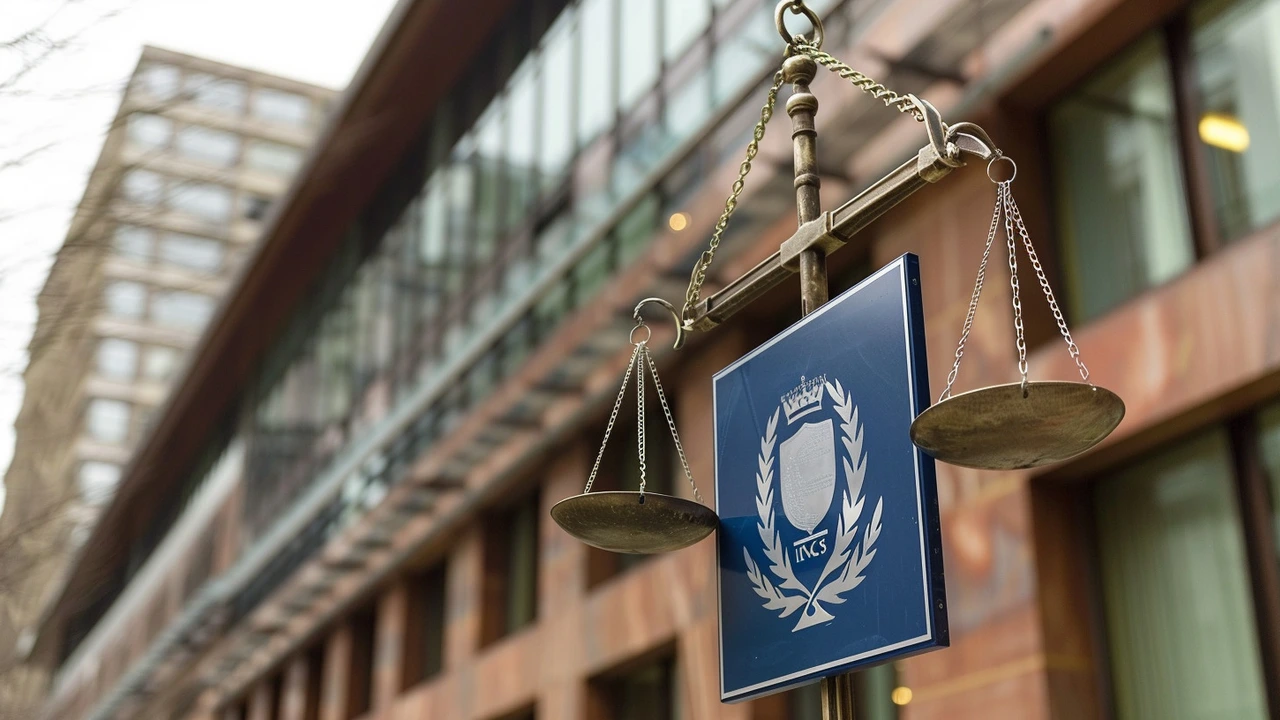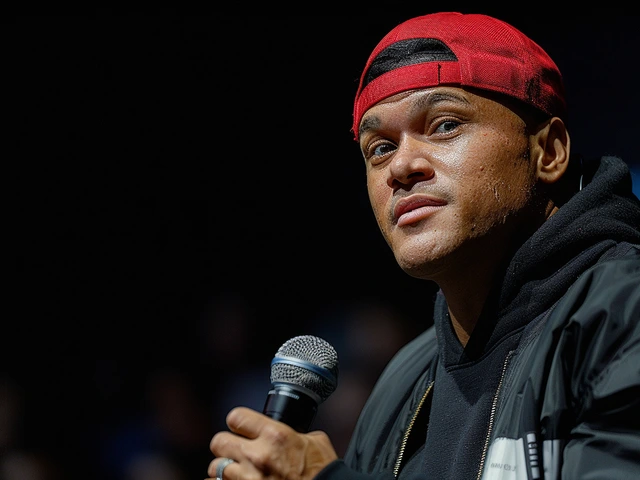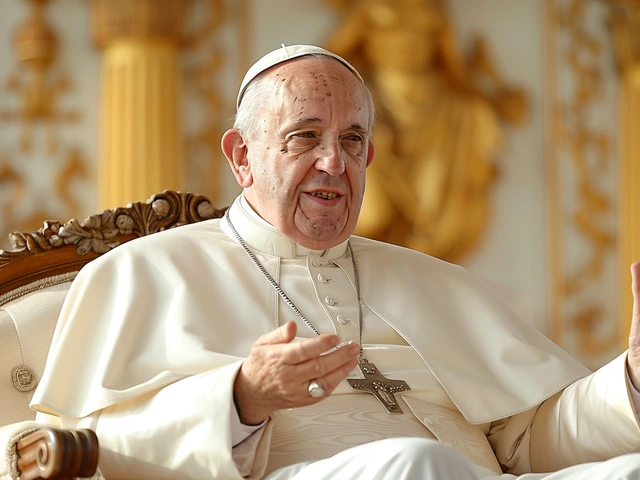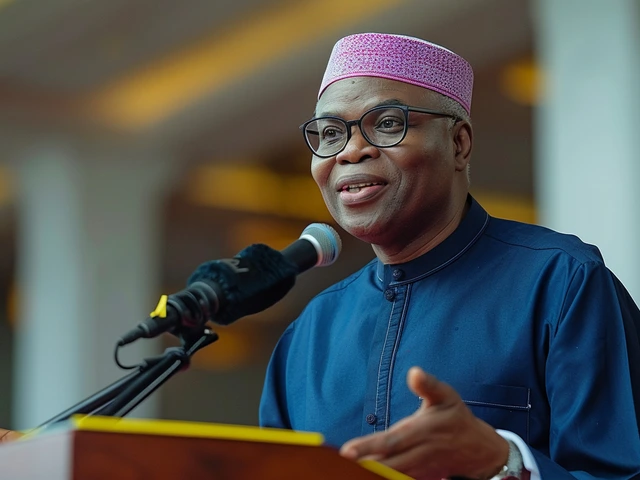ICC Pursues Arrest Warrants for Israeli and Hamas Leaders Over War Crimes

ICC Seeks Arrest Warrants for Israeli and Hamas Leaders
In a significant move that has sent ripples through international corridors of power, the International Criminal Court (ICC) chief prosecutor Karim Khan announced on May 21, 2024, his intention to seek arrest warrants for top Israeli and Hamas leaders. The bold decision targets figures suspected of committing war crimes and crimes against humanity, and arises from a complex and deeply tragic sequence of events that have unfolded in the past year.
The Catalyst: A Deadly Attack
The catalyst for this high-stakes legal pursuit can be traced back to the harrowing events of October 7, 2023. On this fateful day, Hamas launched a brutal attack on southern Israel, resulting in approximately 1,140 fatalities. This massacre not only shocked the world but also set off a chain reaction of military violence and humanitarian crises.
Israel's Retaliation and Humanitarian Crisis
Following the Hamas attack, Israel conducted extensive military operations in the Gaza Strip. These operations have had devastating consequences, leading to the deaths of more than 35,000 individuals. Tragically, a significant portion of the casualties comprises women and children, with countless others missing and presumed dead. This dire situation has thrust the region into a humanitarian crisis of unprecedented proportions.
Figures Under the ICC Microscope
The ICC's request for arrest warrants focuses on prominent figures from both sides of the conflict. On the Israeli side, Prime Minister Benjamin Netanyahu and Defense Minister Yoav Gallant are under scrutiny. These leaders are suspected of actions that have exacerbated the humanitarian situation in Gaza.
Meanwhile, Hamas leaders Yahya Sinwar, Mohamed Diab Ibrahim al-Masri, and Ismail Haniyeh are also in the ICC's crosshairs. The court views these leaders as having orchestrated a common plan involving egregious war crimes and crimes against humanity directed at Israeli civilians.
The Expert Panel's Findings
Backing the ICC's decision is a panel of noteworthy experts, whose credentials lend weight to the court's proceedings. The panel includes Sir Adrian Fulford, Judge Theodor Meron, Amal Clooney, Danny Friedman, Baroness Helena Kennedy, and Elizabeth Wilmshurst. Their comprehensive review delved into the complexities of the Israel-Palestine conflict and provided an authoritative conclusion.
The panel determined that both Israel and Palestine are High Contracting Parties to the Geneva Convention, emphasizing Israel's military occupation over at least parts of Palestine. This determination plays a crucial role in addressing legal responsibilities and violations.
Accusations Against Leaders
In their findings, the panel accused Hamas leaders of orchestrating deliberate attacks against Israel's civilian population, actions that qualify as war crimes and crimes against humanity. This coordinated plan has escalated the violence, leading to widespread condemnation and calls for accountability.
On the other side, the panel highlighted Israel's obligations under international law to provide humanitarian relief to civilians in Gaza. Since the 2005 disengagement plan, Gaza has remained dependent on Israel for essential survival objects. The report expressed deep concern that Netanyahu and Gallant had intentionally targeted civilian populations in Gaza, potentially contributing to a strategy of starvation.
The Path Forward
The ICC's pursuit of justice now hinges on the ruling of a panel of three judges. The judges must evaluate the evidence presented and decide whether to issue the proposed arrest warrants. Historically, such decisions take approximately two months, during which time the international community will be closely monitoring the proceedings.
The ramifications of these potential arrest warrants are profound. If issued, they could lead to significant geopolitical and legal repercussions. Notably, the decision reinforces the notion that leaders, irrespective of their status, can be held accountable for actions that violate international law.
The Broader Impact
The intensified scrutiny on both Israeli and Hamas leaders underscores the broader implications for international justice. The ICC's moves may set a precedent, demonstrating that the global community can and will seek accountability for crimes against humanity. This could serve as a deterrent for future violations and instigate a dialogue on how to better manage and resolve conflicts.
In conclusion, the ICC's decision to pursue arrest warrants for key Israeli and Hamas leaders marks a pivotal moment in the ongoing quest for justice amid the Israel-Palestine conflict. As the world watches, the proceedings in The Hague may very well shape the future of how the international community responds to allegations of war crimes and crimes against humanity.






Lauren Markovic
May 21, 2024 AT 20:23Just to add a bit of context, the ICC’s move is grounded in a series of detailed investigations that span both sides of the conflict. The prosecutor’s office has been gathering witness testimonies, satellite imagery, and forensic reports for months now 🚀. If the warrants are issued, it could force leaders to face legal scrutiny they’ve been trying to sidestep for years. This isn’t just political theater; it’s a concrete legal step with real implications.
Kathryn Susan Jenifer
May 21, 2024 AT 21:33Oh great, another drama episode in the never‑ending saga of geopolitics – just what the world needed 🌍. The ICC deciding to go after big names feels like a reality‑TV twist, except the stakes are billions of lives. If only the international community could pull the same kind of ‘surprise’ moves for actual peace.
Jordan Bowens
May 21, 2024 AT 22:56Looks like the legal world finally grew a pair.
Kimberly Hickam
May 22, 2024 AT 00:20The very notion of holding sovereign leaders accountable through an international judicial mechanism is, at its core, a profound affirmation of the universal principles embedded in the charter of humanity. Yet, we must acknowledge the paradox that while the ICC aspires to transcend national interests, it is inevitably entangled in the very realpolitik that defines the modern state system. The legal arguments presented by the expert panel, replete with references to the Geneva Conventions, illuminate a landscape where legal norms and power dynamics intersect, creating a complex tapestry that resists simplistic interpretation. Moreover, the historical precedent set by previous ICC interventions suggests a pattern of selective enforcement that fuels skepticism among those who view the Court as an instrument of Western hegemony. This perception, however, does not diminish the moral weight of pursuing justice for victims whose lives have been shattered by indiscriminate violence. It is essential to recognize that the pursuit of arrest warrants serves not only as a punitive measure but also as a symbolic gesture affirming the value of human dignity. In the broader scheme, such actions could engender a deterrent effect, compelling future leaders to consider the legal ramifications of their strategic choices. Nonetheless, the efficacy of this deterrence hinges upon the willingness of the international community to support the ICC’s mandates with concrete diplomatic and economic measures. The interplay between legal accountability and diplomatic leverage will ultimately determine whether the ICC’s endeavors transcend rhetoric and translate into substantive change. As we observe the unfolding proceedings, we must remain vigilant to the ways in which power structures may attempt to undermine or co‑opt the Court’s authority. The pursuit of justice in this context is not a linear trajectory but a contested arena where law, morality, and politics collide. In conclusion, while the ICC’s initiative embodies a hopeful aspiration toward universal accountability, its success will be measured by the consistency of its application and the resilience of its institutional independence.
Gift OLUWASANMI
July 3, 2024 AT 11:46Let’s be honest, the ICC’s timing feels more like a strategic pawn move than a pure quest for justice. They’re wielding legal rhetoric while the world watches power players dance around the fallout. It’s a classic case of elite courts trying to brandish authority where realpolitik reigns supreme, and the average citizen gets left to parse the smoke and mirrors.
Keith Craft
July 3, 2024 AT 13:10In the grand theatre of international law, this moment stands as a dramatic climax, where the curtain rises on accountability. Yet, the audience-comprising nations and civilians alike-remains uncertain whether the encore will bring resolution or merely a continuation of the same tragic script.